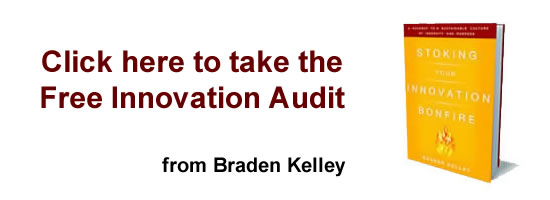When Innovation Goes Wrong, We Shouldn’t Blame Technology, But Ourselves

When I speak at conferences, I’ve noticed that people are increasingly asking me about the unintended consequences of technological advance. As our technology becomes almost unimaginably powerful, there is growing apprehension and fear that we will be unable to control what we create.
This, of course, isn’t anything new. When trains first appeared, many worried that human bodies would melt at the high speeds. In ancient Greece, Plato argued that the invention of writing would destroy conversation. None of these things ever came to pass, of course, but clearly technology has changed the world for good and bad.
The truth is that we can’t fully control technology any more than we can fully control nature or each other. The emergence of significant new technologies unleash forces we can’t hope to understand at the outset and struggle to deal with long after. Yet the most significant issues are most likely to be social in nature and those are the ones we desperately need to focus on.
The Frankenstein Archetype
It’s no accident that Mary Shelley’s novel Frankenstein was published at roughly the same time as the Luddite movement was in full swing. As cottage industries were replaced by smoke belching factories, the sense that man’s creations could turn against him was palpable and the gruesome tale, considered by many to be the first true work of science fiction, touched a nerve.
In many ways, trepidation about technology can be healthy. Concern about industrialization led to social policies that helped mitigate its worst effects. In much the same way, scientists concerned about the threat of nuclear Armageddon did much to help establish policies that would prevent it.
Yet the initial fears almost always prove to be unfounded. While the Luddites burned mills and smashed machines to prevent their economic disenfranchisement, the industrial age led to a rise in the living standards of working people. In a similar vein, more advanced weapons has coincided with a reduction of violent deaths throughout history.
On the other hand, the most challenging aspects of technological advance are often things that we do not expect. While industrialization led to rising incomes, it also led to climate change, something neither the fears of the Luddites nor the creative brilliance of Shelley could have ever conceived of.
The New Frankensteins
Today, the technologies we create will shape the world as never before. Artificially intelligent systems are automating not only physical, but cognitive labor. Gene editing techniques, such as CRISPR, are enabling us to reengineer life itself. Digital and social media have reshaped human discourse.
So it’s not surprising that there are newfound fears about where it’s all going. A study at Oxford found that 47% of US jobs are at risk of being automated over the next 20 years. The speed and ease of gene editing raises the possibility of biohackers wreaking havoc and the rise of social media has coincided with a disturbing rise of authoritarianism around the globe.
Yet I suspect these fears are mostly misplaced. Instead of massive unemployment, we find ourselves in a labor shortage. While it is true that the biohacking is a real possibility, our increased ability to cure disease will most probably greatly exceed the threat. The increased velocity of information also allows good ideas to travel faster and farther.
On the other hand, these technologies will undoubtedly unleash new challenges that we are only beginning to understand. Artificial intelligence raises disturbing questions about what it means to be human, just as the power of genomics will force us to grapple with questions about the nature of the individual and social media forces us to define the meaning of truth.
Revealing And Building
Clearly, Shelly and the Luddites were very different. While Shelley was an aristocratic intellectual, the Luddites were working class weavers. Yet both saw the rise of technology as the end to a way of life and, in that way, both were right. Technology, if nothing else, forces us to adapt, often in ways we don’t expect.
In his 1954 essay, The Question Concerning Technology the German philosopher Martin Heidegger sheds some light on these issues. He described technology as akin to art, in that it reveals truths about the nature of the world, brings them forth and puts them to some specific use. In the process, human nature and its capacity for good and evil is also revealed.
He gives the example of a hydroelectric dam, which reveals the energy of a river and puts it to use making electricity. In much the same sense, Mark Zuckerberg did not “build†a social network at Facebook, but took natural human tendencies and channeled them in a particular way. After all, we go online not for bits or electrons, but to connect with each other.
Yet in another essay, Building Dwelling Thinking, he explains that building also plays an important role, because to build for the world, we first must understand what it means to live in it. The revealing power of technology forces us to rethink old truths and reimagine new societal norms. That, more than anything else, is where the challenges lie.
Learning To Ask The Hard Questions
We are now nearing the end of the digital age and entering a new era of innovation which will likely be more impactful than anything we’ve seen since the rise of electricity and internal combustion a century ago. This, in turn, will initiate a new cycle of revealing and building that will be as challenging as anything humanity has ever faced.
So while it is unlikely that we will ever face a robot uprising, artificial intelligence does pose a number of troubling questions. Should safety systems in a car prioritize the life of a passenger or a pedestrian? Who is accountable for the decisions an automated system makes? We worry about who is teaching our children, but scarcely stop to think about who is training our algorithms.
These are all questions that need answers within the next decade. Beyond that, we will have further quandaries to unravel, such as what is the nature of work and how do we value it? How should we deal with the rising inequality that automation creates? Who should benefit from technological breakthroughs?
The unintentional consequences of technology have less to do with the relationship between us and our inventions than it does between us and each other. Every technological shift brings about a societal shift that reshapes values and norms. Clearly, we are not helpless, but we are responsible. These are very difficult questions and we need to start asking them. Only then can we begin the cycle of revealing truths and building a better future.
An earlier version of this article first appeared in Inc.com
Wait! Before you go…
Choose how you want the latest innovation content delivered to you:
- Daily — RSS Feed — Email — Twitter — Facebook — Linkedin Today
- Weekly — Email Newsletter — Free Magazine — Linkedin Group
 Greg Satell is a popular author, keynote speaker, and trusted adviser whose new book, Cascades: How to Create a Movement that Drives Transformational Change, will be published by McGraw-Hill in April, 2019. His previous effort, Mapping Innovation, was selected as one of the best business books of 2017. You can learn more about Greg on his website, GregSatell.com and follow him on Twitter @DigitalTonto.
Greg Satell is a popular author, keynote speaker, and trusted adviser whose new book, Cascades: How to Create a Movement that Drives Transformational Change, will be published by McGraw-Hill in April, 2019. His previous effort, Mapping Innovation, was selected as one of the best business books of 2017. You can learn more about Greg on his website, GregSatell.com and follow him on Twitter @DigitalTonto.
NEVER MISS ANOTHER NEWSLETTER!
LATEST BLOGS
How Brexit Has Affected UK E-commerce Businesses
Photo by Zyro on Unsplash The popularity of online shopping was already growing at an impressive rate – and…
Read MoreOvercoming range anxiety: three tips for EV owners
Photo by Jenny Ueberberg on Unsplash In the last few years, electric vehicles (EVs) have become more and more…
Read More


